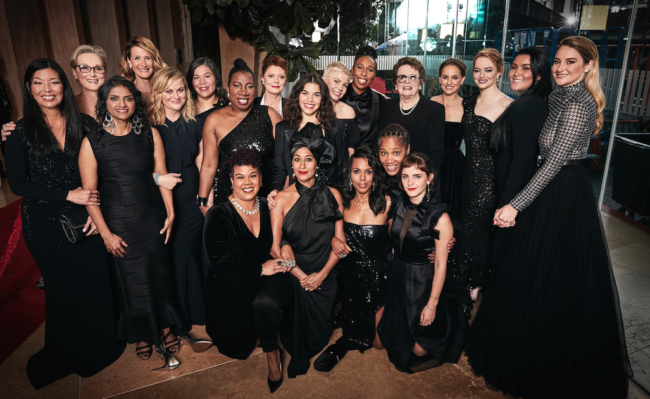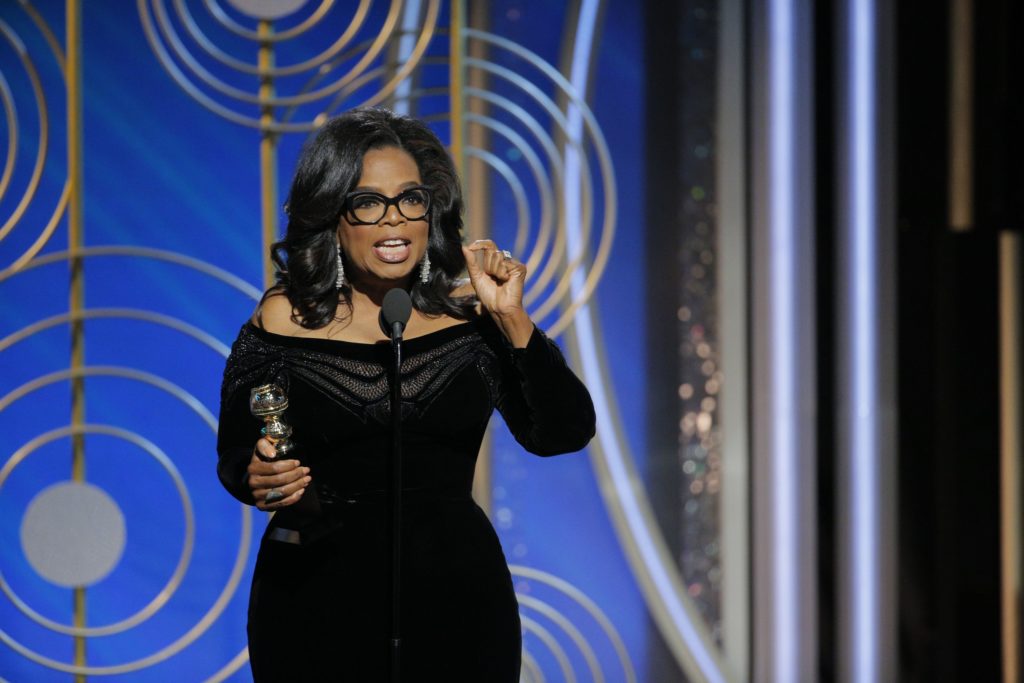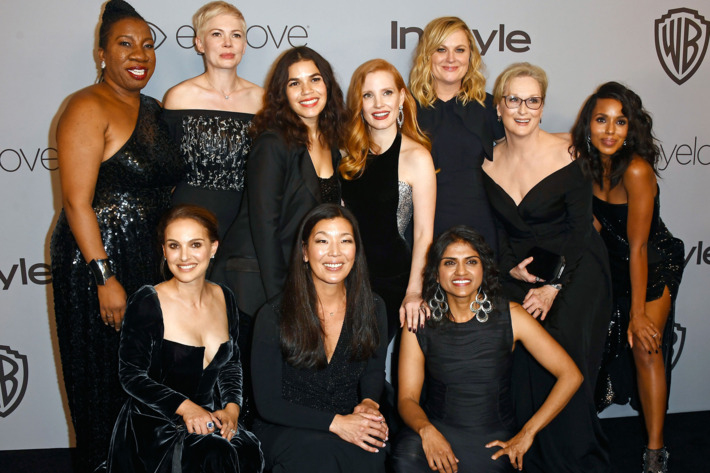The 75th annual Golden Globe Awards aired last night, and it wasn’t just an awards show; it was a night of activism. Almost all of the stars chose to wear black to stand in solidarity with victims of sexual harassment and abuse. As Eva Longoria told the New York Times, “this is a moment of solidarity, not a fashion moment. For years, we’ve sold these awards shows as women, with our gowns and colors and our beautiful faces and our glamour. This time the industry can’t expect us to go up and twirl around. That’s not what this moment is about.”
A number of men wore “Time’s Up” pins to show their support for the recently launched Time’s Up campaign, an organization dedicated to preventing sexual assault and harassment in the workplace by creating a legal defense fund to raise money for women fighting harassment in workplaces across the country. The fund was championed by many Hollywood women, such as Kerry Washington and Reese Witherspoon, and has already raised more than $16 million.

Many women chose to attend the event with their female friends, some even opting to bring along female activists as their dates. Michelle Williams brought Tarana Burke, the “Me Too” founder and senior director of the U.S. nonprofit Girls for Gender Equity, as her date. Ai-jen Poo, the director of the National Domestic Workers Alliance, accompanied Meryl Streep to the awards show. Laura Dern, Amy Poehler, Emma Stone, Shailene Woodley, and Susan Sarandon also brought female activists as their dates to the awards show.
But despite all of these positive happenings, the Golden Globes still had its faults. Before the show even began, viewers noticed some issues with the red carpet pre-show. Red carpet anchors seemed largely unprepared to engage in conversation with the stars around the topics of sexual harassment, the wage gap, or a variety of other types of sexism that the actresses and female activists wanted to discuss. Ryan Seacrest didn’t seem to know how to address the non-celebrity activist guests. It seemed as though the anchors had done little preparation and invested little effort into being well-versed on the issues that were obviously going to be at the forefront of the show.

In fact, unsurprisingly, the night’s best articulation of the significance of Time’s Up and the black dresses honoring it was delivered by Oprah Winfrey, accepting her Cecil B. DeMille Lifetime Achievement Award during the ceremony, rather than anyone at the mercy of a red carpet interview.
So as we move forward in awards season, with shows like the Grammy’s and the Oscar’s ahead, let’s hope that the pre-show can be much less tone-deaf and much more aware of the sexist issues affecting women in Hollywood and beyond. No protest is perfect, and this black dress movement wasn’t either, but it doesn’t have to be. The point of it was to raise awareness about the Time’s Up initiative and start a dialogue about sexual harassment and abuse—and that’s exactly what it did.

